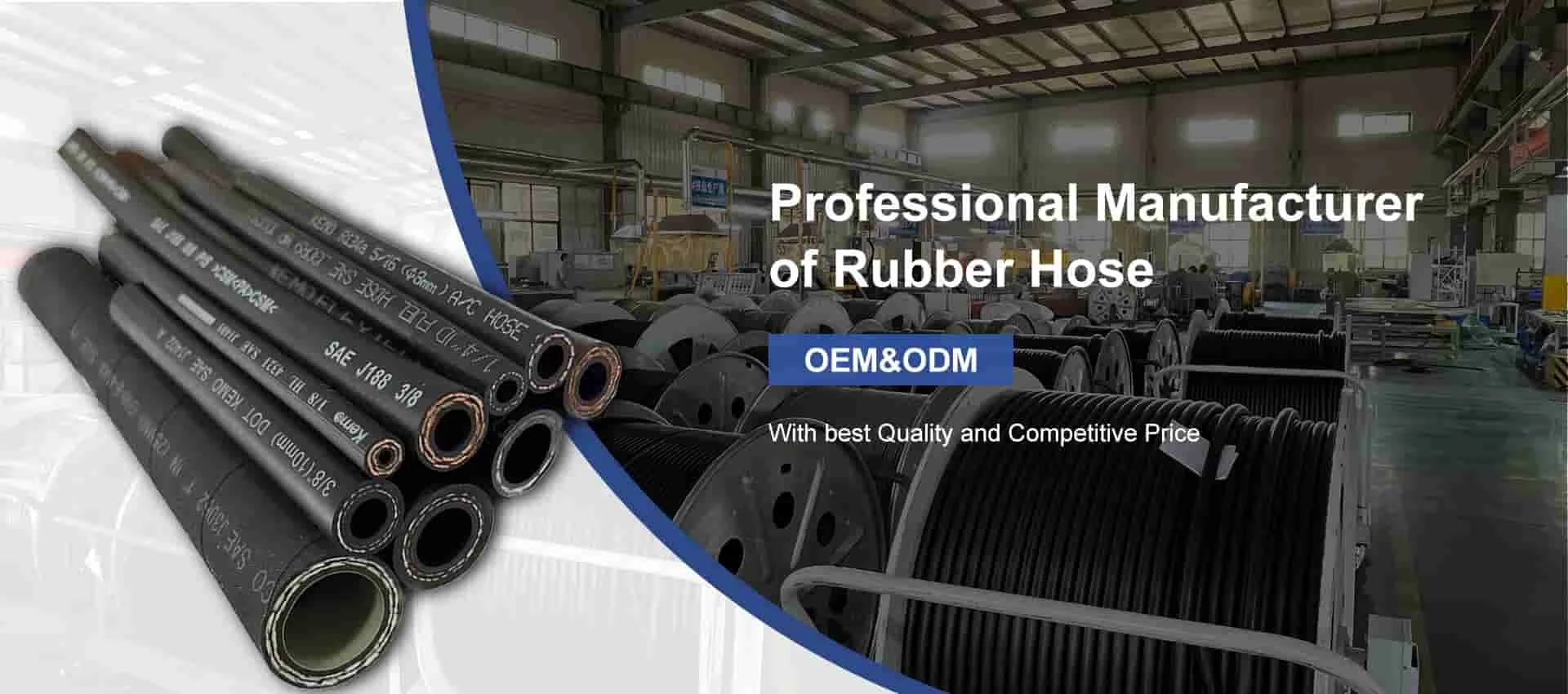Durable Rubber Fuel Lines for Reliable Automotive Performance and Safety Solutions
Dec . 14, 2024 21:38 Back to list
Durable Rubber Fuel Lines for Reliable Automotive Performance and Safety Solutions
The Importance of Rubber Fuel Pipes in Automotive Applications
In the automotive industry, fuel delivery systems play a crucial role in ensuring that engines perform efficiently and reliably. One of the key components of these systems is the rubber fuel pipe. These pipes, designed to transport fuel from the tank to the engine, are essential for the operation of any vehicle. This article explores the significance of rubber fuel pipes, their construction, advantages, and maintenance considerations.
Construction and Composition
Rubber fuel pipes are typically made from a combination of synthetic rubber and other materials that provide resistance to fuel and other fluids. Commonly used materials include nitrile rubber (NBR), which is well-known for its excellent fuel resistance. The inner lining of these pipes is designed to withstand the corrosive nature of various fuels, including gasoline and diesel. The outer layer is often reinforced with fabric or braided materials to enhance strength and durability, ensuring that the pipes can withstand high pressures and temperatures.
The design of rubber fuel pipes often incorporates features such as flexible tubing to accommodate engine movement and changes in temperature. This flexibility is critical, as it helps prevent leaks and ensures a steady supply of fuel to the engine, even under varying conditions.
Advantages of Rubber Fuel Pipes
1. Flexibility and Ease of Installation Rubber fuel pipes are easily bendable, making them ideal for navigating the complex layouts of modern engines. Their flexibility allows for straightforward installation in tight spaces, which is particularly beneficial in compact vehicles.
2. Resistance to Fuel and Oil The primary function of fuel pipes is to transport fuel safely, and rubber pipes excel in this aspect. Resistant to a range of fuels, oils, and chemicals, rubber fuel pipes minimize the risk of degradation that could lead to leaks or failures.
3. Vibration Absorption Engine vibrations can deteriorate less resilient materials, leading to premature failure. Rubber fuel pipes are capable of absorbing vibrations, which helps prolong their lifespan and maintain their functionality.
4. Cost-Effectiveness Compared to metal or plastic alternatives, rubber fuel pipes are often more cost-effective. They provide a balance between affordability and performance, making them a popular choice in many vehicles.
rubber fuel pipe

5. Temperature Tolerance Rubber fuel pipes can typically handle a wide range of temperatures, maintaining their integrity in both hot and cold conditions. This characteristic is vital for vehicles that operate in different climates.
Maintenance Considerations
While rubber fuel pipes are durable, they are not indestructible. Regular maintenance is essential to ensure their continued performance. Here are a few maintenance tips
- Regular Inspections Inspect fuel pipes regularly for signs of wear, such as cracks, swellings, or leaks. Discovering issues early can prevent severe engine problems and costly repairs.
- Replace When Necessary It’s essential to replace rubber fuel pipes according to the manufacturer's recommendations or when they show signs of damage. Do not wait until a failure occurs to take action.
- Avoid Exposure to Extreme Conditions Although rubber fuel pipes are resistant to various conditions, prolonged exposure to extreme temperatures, UV light, and harsh chemicals can degrade their material. Protecting pipes from such conditions can enhance their longevity.
- Proper Fuel Type Using the correct type of fuel is vital for maintaining the integrity of rubber fuel pipes. Some fuels have additives that can be harmful to certain rubber formulations, so always adhere to the manufacturer's specifications.
Conclusion
Rubber fuel pipes are a vital component of the automotive fuel delivery system. Their flexibility, resistance to fuel, and ability to tolerate various temperatures make them ideal for use in modern vehicles. However, regular maintenance and inspections are crucial in ensuring their reliability and longevity. By understanding the role and care of rubber fuel pipes, vehicle owners and manufacturers can contribute to safer and more efficient automotive operations. As the industry continues to evolve, the materials and technologies surrounding fuel delivery systems will likely advance, but the essential role of rubber fuel pipes will remain significant.
